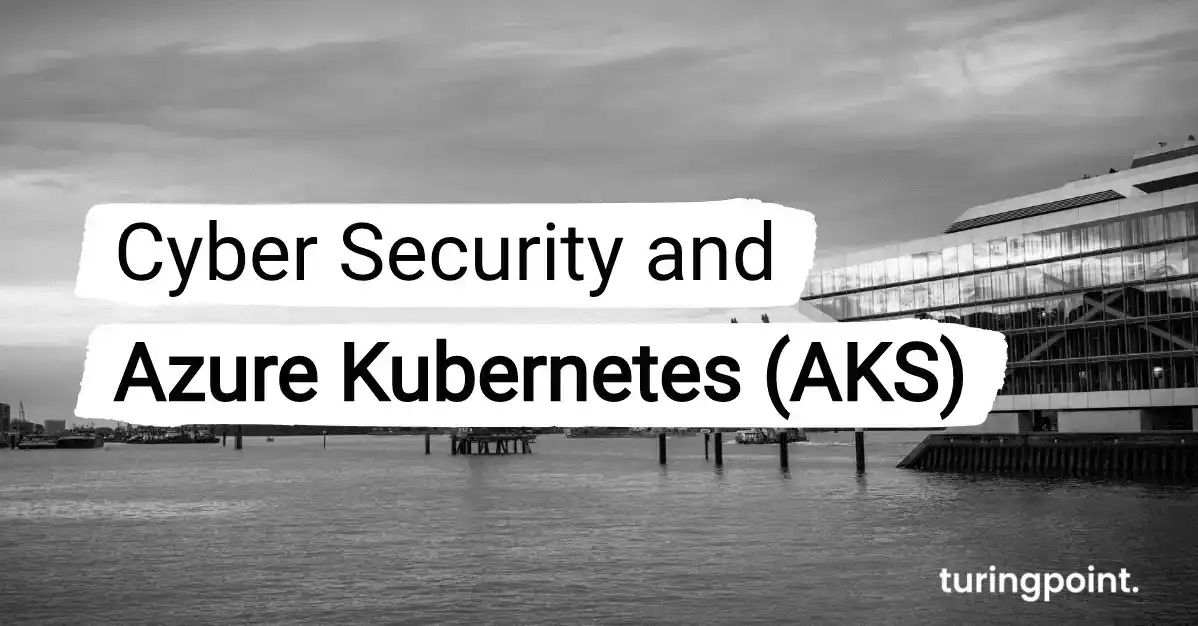Best Practices: Cyber Security Azure Kubernetes (AKS) Security
AKS provides access control and authentication for users and applications. It also provides role-based access control (RBAC) to help you manage access to resources within your cluster.

Table of content
Azure Kubernetes Service Features
Security, Access, and Monitoring
Azure Kubernetes Service (AKS) provides a secure and reliable environment for running containerized applications. It provides a range of security features to help protect your applications and data from unauthorized access and malicious attacks.
AKS provides access control and authentication for users and applications. It also provides role-based access control (RBAC) to help you manage access to resources within your cluster. AKS also provides monitoring and logging capabilities to help you detect and respond to security incidents.
Identity and Security Management
AKS provides identity and security management features to help you protect your applications and data. It provides authentication and authorization for users and applications. It also provides role-based access control (RBAC) to help you manage access to resources within your cluster.
AKS also provides security features such as encryption at rest and in transit, and secure communication between nodes. It also provides network security features such as network segmentation and firewalls to help protect your applications and data.
Integrated Logging and Monitoring
AKS provides integrated logging and monitoring capabilities to help you detect and respond to security incidents. It provides audit logging to help you track user and application activity. It also provides log aggregation and analysis to help you identify potential security threats.
AKS also provides monitoring capabilities to help you detect and respond to security incidents. It provides metrics and alerts to help you monitor the health and performance of your applications and clusters.
Clusters and Nodes
AKS provides security features to help protect your clusters and nodes. It provides network security features such as network segmentation and firewalls to help protect your applications and data. It also provides encryption at rest and in transit to help protect your data.
AKS also provides security features to help protect your nodes. It provides secure boot and secure configuration to help protect your nodes from malicious attacks. It also provides patching and vulnerability scanning to help you keep your nodes up to date and secure.
Best Practices: Cyber Security for Azure Kubernetes (AKS) Security
Azure Kubernetes Service (AKS) provides a secure and reliable environment for running containerized applications. To ensure the security of your applications and data, it is important to follow best practices for cyber security. Here are some best practices for securing your AKS environment:
Azure AKS Monitoring and Observability
Monitoring and observability are essential for ensuring the security of your AKS environment. You should monitor your AKS environment for potential security threats and incidents. You should also use logging and metrics to track user and application activity.
Network Security
Network security is essential for protecting your AKS environment from malicious attacks. You should use network segmentation and firewalls to help protect your applications and data. You should also use encryption at rest and in transit to help protect your data.
Regular Update to the latest Kubernetes version
It is important to keep your AKS environment up to date with the latest version of Kubernetes. Regularly updating your AKS environment will help ensure that your environment is secure and up to date with the latest security patches and features.
Secure Container Access to Resources
Containers should be securely configured to access only the resources they need. You should use role-based access control (RBAC) to help you manage access to resources within your cluster. You should also use authentication and authorization to help you protect your applications and data.
Cluster and Node Security
Cluster and node security is essential for protecting your AKS environment. You should use secure boot and secure configuration to help protect your nodes from malicious attacks. You should also use patching and vulnerability scanning to help you keep your nodes up to date and secure.
Conclusion
In conclusion, Azure Kubernetes Service (AKS) provides a secure and reliable environment for running containerized applications. To ensure the security of your applications and data, it is important to follow best practices for cyber security. This includes monitoring and observability, network security, regular updates to the latest Kubernetes version, secure container access to resources, and cluster and node security. Following these best practices will help you keep your AKS environment secure and protected from malicious attacks.
Contact
Curious? Convinced? Interested?
Schedule a no-obligation initial consultation with one of our sales representatives. Use the following link to select an appointment:
